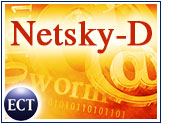
Napster, the onetime file-swapping nexus that sparked fear in the hearts — and bottom lines — of record labels, has officially been tamed and will relaunch as a legitimate online music service, parent company Roxio announced Thursday.
Napster 2.0 will be available to U.S. residents on October 29th. Users who register for the service before the launch date will receive five free downloads once it is operational.
In addition to the launch announcement, Napster revealed a partnership with Samsung Electronics in which Samsung will develop a series of portable jukeboxes that integrate seamlessly with Napster, much like Apple’s iPod integrates with Apple’s iTunes Music Store (iTMS). The first Samsung player, which includes an FM transmitter, will become available at Best Buy stores October 19th.
Pressplay To Stop
Napster spokesperson Seth Oster told the E-Commerce Times that Roxio saw a unique opportunity when it purchased Napster’s assets.
“Roxio saw in Napster the single most beloved brand ever in [online] music,” Oster said. “Its worldwide recognition and its tremendous brand affinity [with consumers] offer an enormous advantage when competing in this space.”
The new Napster will replace Pressplay, a subscription-based online music service also run by Roxio. In fact, according to Oster, Roxio did not acquire Pressplay, which was previously owned by Universal Music Group and Sony, until it first had purchased Napster. He said the company’s intention always was to use Pressplay as a foundation for Napster 2.0.
iTunes Compare and Contrast
Napster will make its library of 500,000 songs available to users as both an a la carte service and a premium subscription service. Individual songs will be priced at 99 U.S. cents, while full albums will cost $9.95, on par with iTMS rates.
Unlike iTMS, Napster will use Microsoft’s WMA file format rather than AAC and, at present, will run only on Windows PCs. Although Apple has said it will launch its much-anticipated Windows version of iTMS on October 16th, right now the service is available only for Mac OS users.
Oster said Napster’s premium features break new ground in peer-to-peer functionality and live up to the legacy of the original Napster. In addition to unlimited streaming and what he called “tethered downloads,” which allow subscribers to download as many songs as they wish (although tracks downloaded under this model are not portable, unlike the a la carte 99-cent downloads), the subscription service allows users to display their collection of tracks, e-mail songs and comments to other subscribers, and browse other members’ collections.
“Napster 2.0 … has community features and tools for discovering new music that were important parts of the original Napster experience,” Napster inventor Shawn Fanning said.
The Napster Challenge
GartnerG2 analyst Mike McGuire, who has been testing the trial version of the new Napster, told the E-Commerce Times that Napster’s subscription service has some intriguing features, including the opt-in ability for a user to post the songs he or she is listening to and find out which songs are on other users’ playlists.
According to McGuire, Grateful Dead lyricist John Perry Barlow once said people have an innate desire to share things that are cool. Illustrating this point, McGuire cited the prevalence of music-based communities, such as the Deadheads, long before the Internet’s rise.
The challenge for online retailers is to extend music listeners’ sense of community into the e-commerce arena, he said.
McGuire added that he can foresee a time when communities based on certain genres of music, such as speed metal or reggae, could congregate at Napster, and he noted that Napster faces an interesting challenge in terms of how best to engage these enthusiasts. For example, if the company overmanages its forums, he said, they will become less attractive to users seeking community and may limit Napster’s ability to maintain customer loyalty.
Multiple Music Services
McGuire went on to say that there is room for several online music services catering to a range of customer preferences — and that, going forward, there will be increasing differentiation of services offered by various companies.
He said he is not presumptuous enough to attempt to identify which business model will emerge as the leader in the online music industry. However, he did predict that the next two to five years will be marked by significant experimentation with a wide variety of approaches.
























































Social Media
See all Social Media